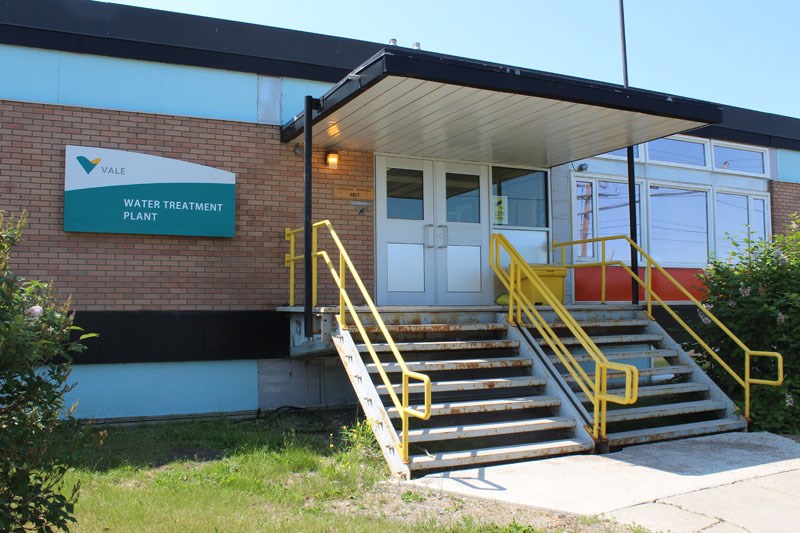While most electrical outages in Thompson are quickly restored – five reported on Oct. 16 were repaired within a few hours – a catastrophic storm like the one southern Manitoba just experienced that knocks out power for an extended period could make it difficult to ensure an adequate supply of clean drinking water for residents of the city.
When a Manitoba Hydro pole in the Southwood area was struck by a vehicle in early August and needed to be replaced, the resulting power outage led the City of Thompson to ask residents to ration their water use.
“Without power, the Water Treatment Plant has a limited reserve of water available for the city,” said an Aug. 9 post on the City of Thompson Facebook page.
In response to questions about how much drinkable water the treatment plant reservoirs contain in the event of an extended power outage, or if the city has other potable water reserves, the City of Thompson said it was gathering that and related information for its upcoming newsletter and would provide the information when it became available.
Tara Ritchie of Vale Manitoba Operations says that the mining company uses about 25 per cent of the treated water from the city-operated water treatment plant right now (paying market rates for any use above that threshold), but that the company has made changes in recent years to reduce their potable water requirements.
“In 2018 we switched to using process water or ‘river water’ instead of potable water for our underground operations,” says Ritchie. “Since the closure of the smelter and refinery and switching to process water underground, we have reduced our potable water consumption by 50 per cent as well as our overall environmental footprint. In the event of future emergencies, upon notification from the city, Vale will issue a plant-wide bulletin to limit potable water usage on site where possible.”
The Northern Regional Health Authority has backup generators to provide the Thompson General Hospital, Northern Spirit Manor personal care home and the Hope North Recovery Centre for Youth with electricity in the event of a power outage, but the Thompson clinic and the acute brain injury house do not have generators.
“Thompson General Hospital does not have a reserve water supply,” said NRHA communications co-ordinator Twyla Storey. “We have emergency response plans and business continuity plans for water supply issues, drinking water advisories and sewer system disruptions to name a few. We also have the support and resourcing of the provincial Office of Disaster Management if needed.”
Access to potable water in the event of an extended power outage will improve when the new Thompson airport is completed. Right now, the airport hauls potable water daily and weekly, on an as-needed basis, to supply the potable water requirements of the terminal building. Non-potable water, such as that used in the washrooms, is supplied by the airport’s well systems, said Thompson Regional Airport Authority CEO Curtis Ross, adding that the airport has a standalone backup generator that services the airfield and essential services in the terminal.
Among the features of the new airport under construction is a water treatment plant that will provide potable water to the new terminal and all the tenants currently at the airport.
“It will also provide fire hydrants to the north hangar road for the first time and allow for firefighting services,” said Ross. “In addition to that it will allow us to install the appropriate fire suppression systems and sprinkler systems in the new airport terminal building for the first time. Presently we have no fire suppression systems or ability to fight fire at the airport. The new water treatment plant will have its own standalone back up generator systems to allow us to maintain those services in the case of a power failure or major weather event.”




